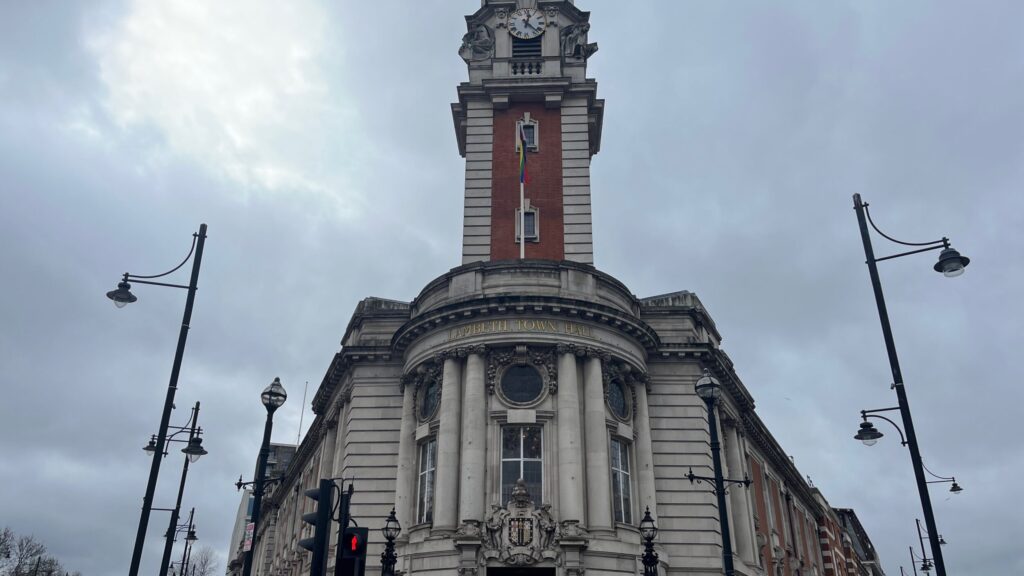Lambeth Council faces a £34.3m overspend in its annual budget, overwhelmingly driven by the demand for temporary accommodation.
A report that set out the state of the borough’s 2024/25 finances was presented at a council cabinet meeting on 7 October. The increasing cost of housing homeless families makes up £28m of the overspend.
Lambeth Council is expecting to spend £90m on temporary accommodation this financial year, ending in April 2025.
Local authorities have a legal duty to secure accommodation for homeless households.
Councillor David Amos, the Labour-run borough’s lead for finance, called on the Government to provide “urgent” support to Lambeth and other councils.
‘Simply Unsustainable’
Lambeth Council are currently supporting 4,600 homeless families, a increased 50% in the last two years.
One in 27 households in temporary accommodation across England are housed in Lambeth. A situation that Cllr Amos told the meeting was “simply unsustainable”.
The council are having to use more expensive options to accommodate families due to housing shortages. Councillor Danny Adilypour, Lambeth’s deputy leader for housing, told the cabinet that the cost of housing a family overnight has doubled in the last year to around £80.
Work has already begun to identify savings in the budget. The council announced in September that this would include a pause in recruitment, reviews of what work can be stopped, and bringing forward already planned future savings or income generation proposals.
In an appeal to the Government, Cllr Amos said:
‘Central Government must act—it has clearly been listening since the general election—to provide urgent support to address the crisis confronting Lambeth and fix the local government funding system to provide fairer funding based on meeting need.’
Gap in Government subsidy
With two weeks to go until the Labour Government’s first budget, Lambeth have been at the forefront of calls to make sure councils are not overlooked.
Last week, 150+ households contacted us for emergency housing 🏡
We’re seeing unprecedented demand as a result of the cost of living crisis 📈
We’re asking the Govt to update housing benefits to 2024 rent levels, to help us meet the £90million cost of temporary accommodation📣 pic.twitter.com/Q4LQXYlQeK
— Lambeth Council (@lambeth_council) October 7, 2024
London Councils, the body that represents local government in the capital, has identified the ‘temporary accommodation housing benefit subsidy gap’ as a concern it wants to see addressed.
At the moment, the amount of money councils can claim from the Government for the cost of temporary accommodation is set at 2011 rent levels.
Lambeth Council estimates that updating the subsidy to reflect the current cost of accommodation would provide an extra £20m of funding for the authority.
City-wide issue
An increasing demand for homelessness services has come at a time when local government finances have been strained.
London Councils estimate that the capital’s boroughs spend £3m every day on temporary accommodation.
The number of households in temporary accommodation across the capital has risen by 50% since 2014.
Temporary accommodation is only one of the ‘statutory’ services that local authorities are legally required to provide. Rising demand for child and adult social care has also contributed to a situation where the ability to support the most vulnerable is ‘under threat’, according to an open letter from council leaders to the Chancellor.
The Local Government Association (LGA), the body that represents local authorities in England and Wales, says that councils have seen their spending power reduced by 22.2% since 2010/11.
In February, the Ministry of Housing, Communities and Local Government stepped in to provide 18 councils with ‘Exceptional Financial Support’. The LGA said this was:
‘unprecedented and underlines the risk of financial failure becoming systemic without further financial support.’
Since 2020, Croydon Council has faced emergency spending restrictions through a Section 114 notice, issued when a council is at risk of bankruptcy.
Notices mean that councils can’t take on new spending and must reduce their budgets. This often mean cuts to council services.
Chancellor Rachel Reeves will deliver her first budget on 30 October. She has previously said it “will involve taking difficult decisions to meet [the Government’s] fiscal rules across spending, welfare and tax”.
The Ministry of Housing, Communities and Local Government and the Department of Work and Pensions did not respond to a request for comment.






